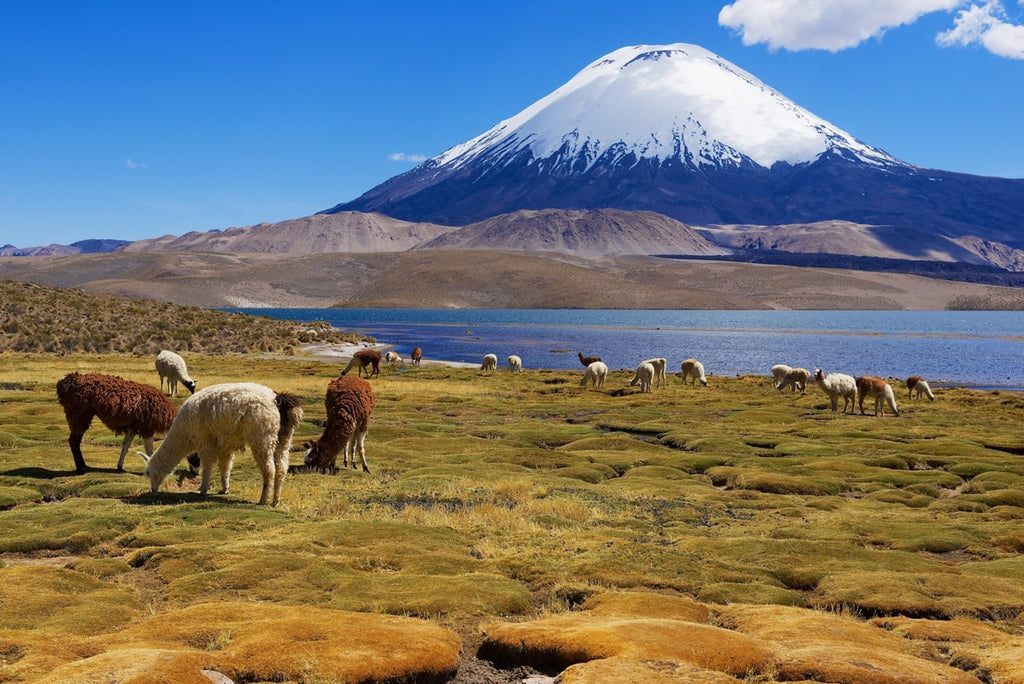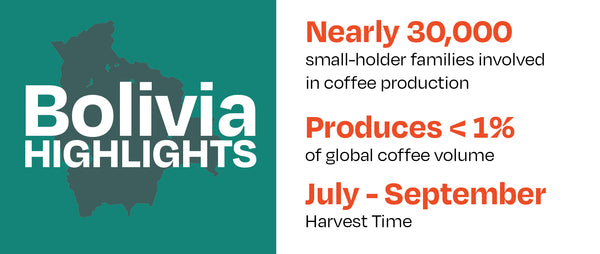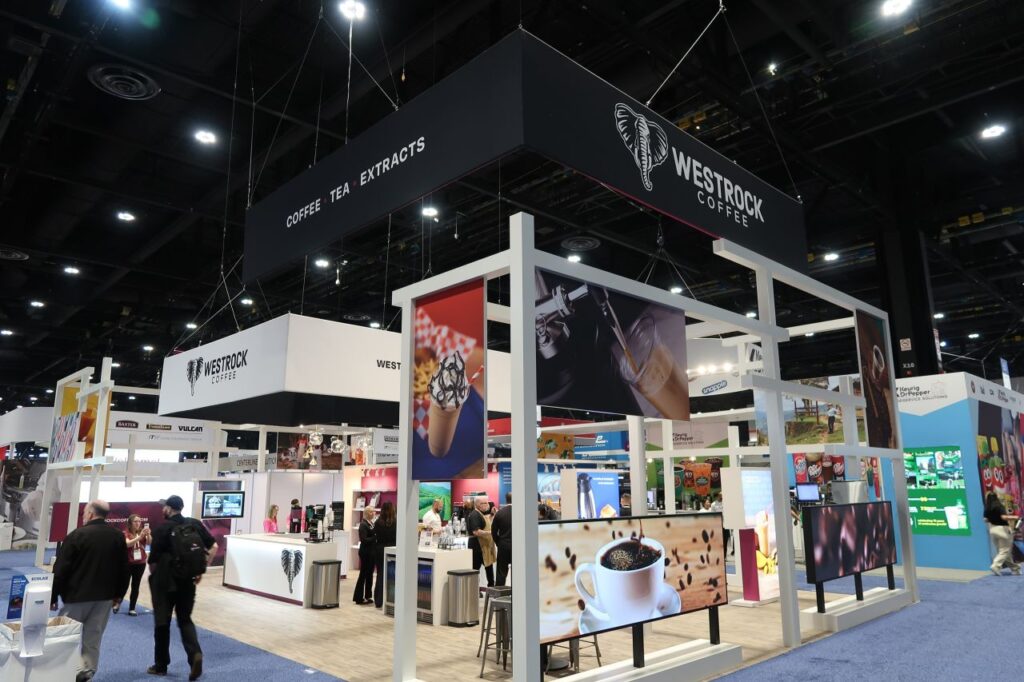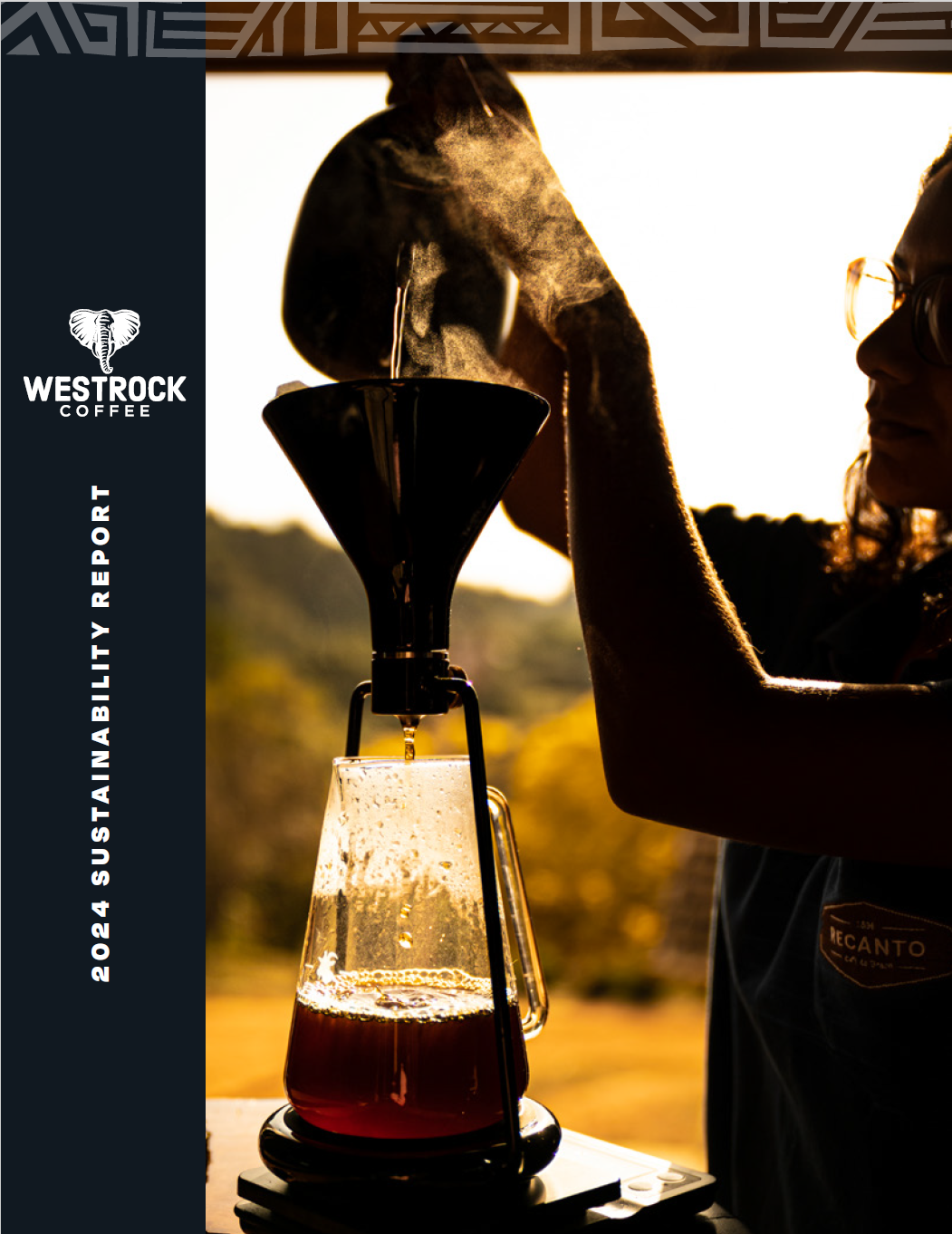June 12, 2024
Bordering two well-established coffee producing countries, Peru and Brazil, lies Bolivia, one of two landlocked countries in South America with a small but quality focused coffee production industry. Bolivia lies along the equator and contains a section of the Andes mountains, the Amazon basin, and shares Lake Titicaca with Peru. This diverse geographical makeup gives the country many beautiful and varied landscapes that make coffee production possible but logistically problematic. The mountains coupled with lack of road infrastructure make transportation difficult domestically and lack of sea access makes shipping expensive. Despite these challenges Bolivian’s have adapted to carve out their own niche in the global coffee market.


Coffee cultivation in Bolivia began in the late 18th century and was introduced by colonial Spanish settlers. It was first planted in the Yungas, an area along the Eastern side of the Andes mountains and was cultivated by indigenous Bolivians who were exploited through debt-bondage. During this era of coffee production, the country produced very small volumes of which most of the coffee was exported and the remainder was consumed by the wealthy members of Bolivian society. Coffee production ramped up in the 1920’s but it wasn’t until the 1952 Bolivian National Revolution that indigenous groups were freed and able to own and cultivate their own land. Since then, farmer groups, cooperatives, and organizations have formed to support Bolivian coffee farmers moving the industry to focus on raising coffee quality.

The focus on growing and processing high quality coffee came to a head in 2004 when the Cup of Excellence came to Bolivia. The Cup of Excellence highlighted the special qualities of Bolivian coffees to both domestic and international coffee enthusiasts. In Bolivian cities like La Paz and Santa Cruz, specialty coffee roasters and cafés have sprung up to meet a local demand for quality coffee beverages.

Today Bolivia is the 38th largest coffee producing country in the world with 95% of the production still centered in the Yungas region. Around 95% of the coffee grown in the country is done so by small-holder farmers on plots of land ranging from 1 hectare to 8 hectares. These farmers focus on promoting specialty coffee on agroforestry style plots, cementing Bolivia as a small, but valuable, source for delicious high-quality coffee.

If you have the chance to try Bolivian coffee for yourself, Westrock Coffee’s flavor experts suggest you look for notes of blood orange, florals, apricot, caramel, and butterscotch.




